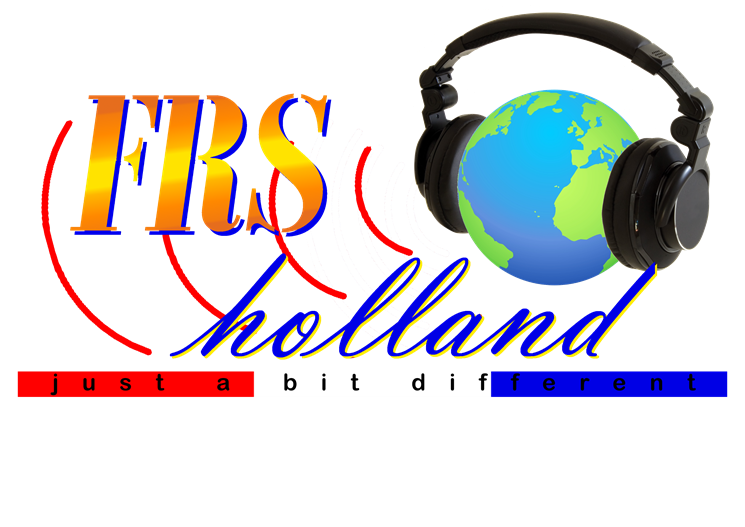FRS Summer Splash
The 4th edition of FRS' Summer Splash takes place on 3 consecutive Sundays in arow: July 21st, 28th & August 4th (19:00- 21:00 UTC).
See 'Latest News' section in our top menu!

The 4th edition of FRS' Summer Splash takes place on 3 consecutive Sundays in arow: July 21st, 28th & August 4th (19:00- 21:00 UTC).
See 'Latest News' section in our top menu!

FRS’ 18th year began with a longer period of silence.
Early April saw the very final edition of the ‘FRS Goes DX’ magazine. For almost 15 years ‘FRS goes DX’ had been a reliable source of information to many European Free Radio enthusiasts and DXers. Already in March 1996, exactly one year earlier, Peter Verbruggen explained that he had been considering the idea of quitting ‘FRS goesDX’. He decided to continue because he knew how much work was spent in the past years to turn the magazine into a good-looking magazine with a varied, interesting offer of radio news. One year later reality had shown that the new situation (4 issues instead of 6 issues) had (too) little effect on his situation. The pressure to finish off the magazine before the deadline was too much and he had come to a point that all the hard work to produce a magazine counted for little to the pleasure, the satisfaction of producing something read by many people obviously being very satisfied with the content/ quality. Add to this that his professional career and family took more of his time and it was obvious Peter couldn’t go on in this way. Producing the magazine simply became too demanding. In the very comprehensive issue 143 editorial, Peter would explain his decision to quit. June would bring a surprise… The free of charge ‘FRS Newsletter’ turned into a small but dedicated newsletter for subscribers and its content changed from covering FRS-Holland news only to emphasizing on Free Radio News. Where the FRS Newsletter ended as a free publication, ‘FRS News’ continued informing the listening audience with news from the Free Radio Service Holland. Similar to the previous two years, there was no FRS activity in the winter 1997 period. It even took two months longer before FRSH signed on: Sunday June 22nd and July 13th early Sunday morning tests were carried out both on 6275. FRS was proud to receive 2 reports from New Zealand and a handful others from the USA.
On August 10th the dust of the good old 150W rig was blowed off and the rig was used on 6246 for a 60 minute test from a FRS site. Result was much to our satisfaction. Already a week later on the 17th FRS put out a Marine Offences Act special. The broadcast was carried out from Peter Verbruggen’s holiday site in a neighbouring country and he was visited by Bobby Speed who took care of all transmitting equipment. In the late Saturday afternoon the antenna was erected and between 00:00- 01:15 CEST FRS signed on testing on 6290 following World Music Radio’s close down. It was just to make sure all was working well. WMR’s OP Stig Hartvig Nielsen remarked it was a splendid idea to switch on seconds after WMR’s closure. At 09:30 CEST FRS started on 6245 with a mix of 60s offshore extracts, jingles, music and not to forget information. At 15:00 FRS closed down and it appeared the station was well received in wide areas even though conditions in August are usually not at their best. Highlight was reception in New Zealand at 09:30 CET. It would become Stefan Kramer’s final show and for almost a year FRS would be without a German presenter.
Sunday August 31st 1997 it was exactly 17 years ago that FRS-Holland officially commenced shortwave transmissions on 6250 kHz. Therefore a two hour unofficial celebration took place between 00:00 and 02:00 CEST on 3910 using an 80W rig. The official 17th anniversary was traditionally celebrated in October and 1997 was no exception.
October 19th 1997 happened to be the 125th official scheduled transmission and FRS-Holland celebrated its 17th birthday with broadcasts on 6245, 6268 & 5805 from 3 separate sites in 3 different countries. The 5805 outlet came from the UK and ran non-stop for 24 hours from Saturday evening onwards until the early Sunday evening. Reception on this 51 mb frequency was very satisfactory. The main broadcast came from the site which was first used a year ago. Programmes went out on 6245 and were aired between 08.00- 12.00 UTC with a power of approx. 125 watts. The 6268 outlet from somewhere in Germany was one hour ahead of 6245 and also on this frequency reception was loud and clear. No less than 100 reports were received from 10 different countries. FRS was very happy with the positive attitude of the Jolly Roger Radio OP who kindly left 6245 clear for FRSH and was to be heard that particular Sunday on 6222 kHz. Less positive was the fact that the FRS-Holland staff was reduced to only two experienced persons who had been on the station right from the very beginning: FRS founder Peter Verbruggen and Joop ter Zee. Since FRS’ start in 1983 the FRS team had always consisted of at least 4 persons. Without any doubt the fact that two esteemed colleagues- Tony Mitchell and Stefan Kramer– quitted within a 10 month period was a great loss and FRS didn’t succeed in quickly attracting new experienced presenters. The lack of the aforementioned presenters also meant less variety and quality within the programmes.
December 1997 no Holiday Season broadcasts were conducted: the October one would be the final 1997 activity. You may conclude that 1997 wasn’t FRS-Holland’s most active year. During the first 5 months not one single FRS broadcast was to be heard followed by Summer tests; regular 3rd Sunday broadcasts were only noted in August & October.